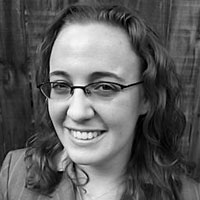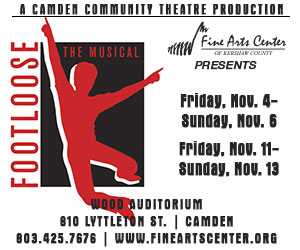Spotlight on Tara Powell
 Collecting the Uncollectible, a talk with poet Tara Powell by Kirby Knowlton
Collecting the Uncollectible, a talk with poet Tara Powell by Kirby Knowlton
On a day when Tara Powell didn’t particularly have anything else to do, she attended a lecture on dark energy. She went in knowing nothing about the subject, but left with a head full of thoughts that she would later organize into a poem from her chapbook, Physical Science (2010, Finishing Line Press), called “From the Lecture on Dark Energy.” An English major at Chapel Hill, her family always put emphasis on practicality, asking her what career she would take: doctor or lawyer? Now, an English professor at USC, she finds herself writing poems about science, finding figurative ways of understanding it. “It’s the nature of the universe to get pulled apart,” she says. “What possibility do we have against resisting?” Questions like this one are what her poems aim to explore.
“It’s my dream job,” she says of USC. “I wanted to work at a large university in the south and work with students in southern literature and poetry.” Which is exactly what Powell does, with courses such as Southern Literature since 1900 and Carolina Novelists. “We read contemporary writers, but also have to read the writers they have read,” she says. “It’s like how when you read Dickey, you also have to read some Faulkner.” Nikky Finney, Natasha Trethewey, and Atsuro Riley are just a few of the poets studied in Powell’s courses.
One of the writers who made Powell realize she wanted to write is Flannery O’Connor. “Her stories are like a closed fist,” she says. “She was the first writer who showed me how writing about a specific place doesn’t mean it’s just for people from that place.” A good many of Powell’s influences hail from her home state of North Carolina. “Doris Betts, one of my professors at Chapel Hill, made me think about what it meant to write as a woman, a southerner, an American, as a teacher. She made me want to be a thoughtful writer and generous teacher.”
Lately Powell has been researching for her new chapbook of poems about the diaspora of a religious group her mother’s ancestors belonged to. The group predates Martin Luther and still has a church in Italy today. She’s interested in what that history has to do with our life now, if anything. Powell has traveled to and interviewed people from Italy and Uruguay, looked deep into her family history. “We try to collect the uncollectible,” she says.






.jpg)
